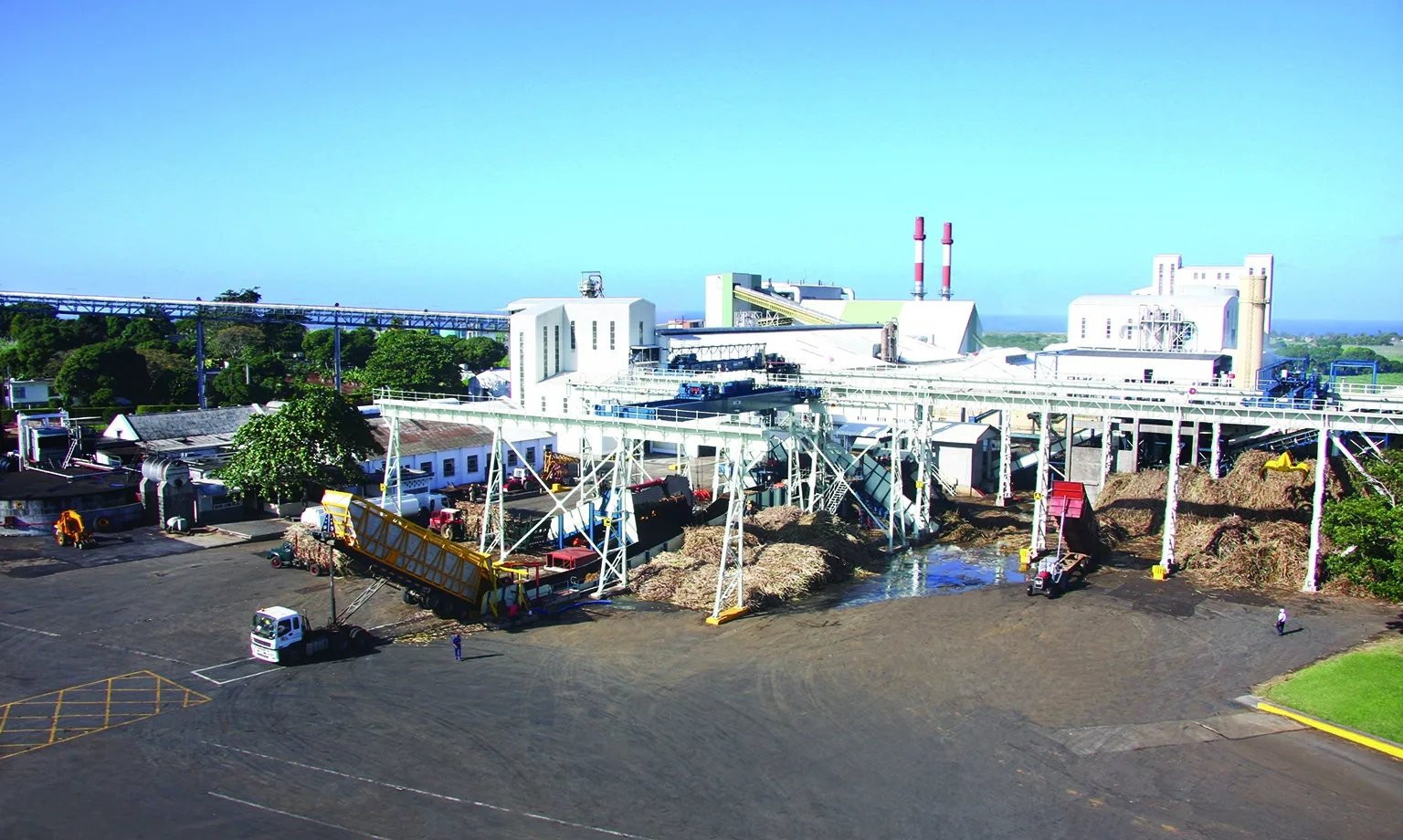Investments made in value added services, including electricity generation for self-sustainable operations, has allowed Omnicane to try its hand in a whole host of associated industries.
REMAINING SUSTAINABLE
Mauritius’ sugarcane industry is more than three centuries old, representing 85 percent of the arable land in the country and heavily contributing to the GDP. During this time, the industry has contributed significantly to infrastructures, education, housing, public welfare and much more.
For just shy of 90 years and previously known as MTMD, Omnicane has been a key part of the cultivation and production of refined sugar, adopting a leading position in the modern sugarcane industry, harvesting 237,610 tonnes of cane in 2010.
“We were born of Mauritius’ centuries-old sugar industry, and strive to be an inspiration for sustainable development through our latest activities not just in farming sugarcane, but in bioethanol, thermal energy and electricity generation,” says the company’s Chief Executive Officer, Jacques d’Unienville.
“Prior to Omnicane, there was a single product: sugarcane. Thereafter, we diversified to demonstrate our ability to work in harmony with partners and shareholders, and to show our new multi-facetted approach to business. Then the name Omnicane was born, Omni from the Greek meaning ‘all’ and cane the source of our activities,” he further details.
The company introduced stream and electricity production on a year-round basis through a dedicated and highly efficient cogeneration power plant, refined sugar EEC Grade II from a specialised refinery, and hydrous ethanol from a state-of-the-art distillery. All of this was made possible through significant investments ever since 2002, amounting to US$350 million. Additionally, Omnicane is engaged in agricultural diversification activities including potato, vegetable, palm heart, fresh water shrimp and venison production.
This diversification is accompanied by a team of talented local staff and expatriates, with a long history in the sugarcane business.
After a recent rebranding, Omnicane seeks to develop a modern image in line with an integrated business model based on its diverse range of value-added products; investing time and resources into a state-of-the-art agro-industrial sustainable cluster at its La Baraque site, under the Omnicane Thermal Energy Operations subsidiary.
“Not only do we produce refined sugar for the European market here, we also generate energy for the national grid, bio ethanol for our distillery, bio fertilisers and beverage grade CO2.
“This cluster will be completed in 2016 with the commissioning of a carbon burn out unit, transforming coal ashes into valuable material for production of specific cements for the construction industry,” explains d’Unienville.
Further, La Baraque is one of the largest coal-bagasse co-generation plants in the world, equipped with two units of 44.5 megawatts each. The site also houses a second power plant that uses woodchips and coal that cater mainly for the company’s distillery requirements, in terms of both steam and electricity generation.
The site is accountable for 40 percent of the country’s renewable bagasse-based energy and represents just under 30 percent of the annual electricity generated in the country.
Based on the fundamental principle of interconnectivity and integration that will serve to sustain the natural ecosystem in Mauritius, La Baraque will drive these sustainable, value-added services in thermal energy that will provide a welcome impact across numerous industries in the country.
VALUE-ADDED SERVICES
As product suppliers, Omnicane has always maintained close working relationships with buyers of Mauritian sugars. Fruitful long-term partnerships have been crucial to Omnicane’s reputation, rapid expansion and diversification in recent years. In line with this, Omnicane is currently investing in the associated business surrounding its activities including cold rooms and other facilities that will form part of a project to ensure food security and freshness as it targets the retail and up-market sugar-based agro-industry. By moving up the value chain, the company hopes to form a closer relationship with the end-user.
The company also remains invested in its position as a responsible corporate citizen, engaging with local communities and supporting numerous local and national NGOs under the banner of the Omnicane Foundation.
“This is our dedicated CSR entity that works across the fields of education, poverty alleviation, community health awareness, sustainable and responsible development, and the promotion of sports.
“By adhering to the Global Reporting Initiative in 2010, we became the very first local corporate organisation to embark on the journey of corporate sustainability,” the CEO highlights.
With such a multitude of prospering business divisions, Omnicane is expanding using the application of a sound business model in order to develop resilience to future industry trends in order to achieve long-term growth and continue to offer an entrepreneurial value-add service to all its clients and partners.
“Omnicane is not just a sugar company, but is more importantly a model of successful Mauritian entrepreneurship within a global business sector dominated by large multinationals,” the CEO concludes.





















